News
Drake’s cultural identity is on trial again
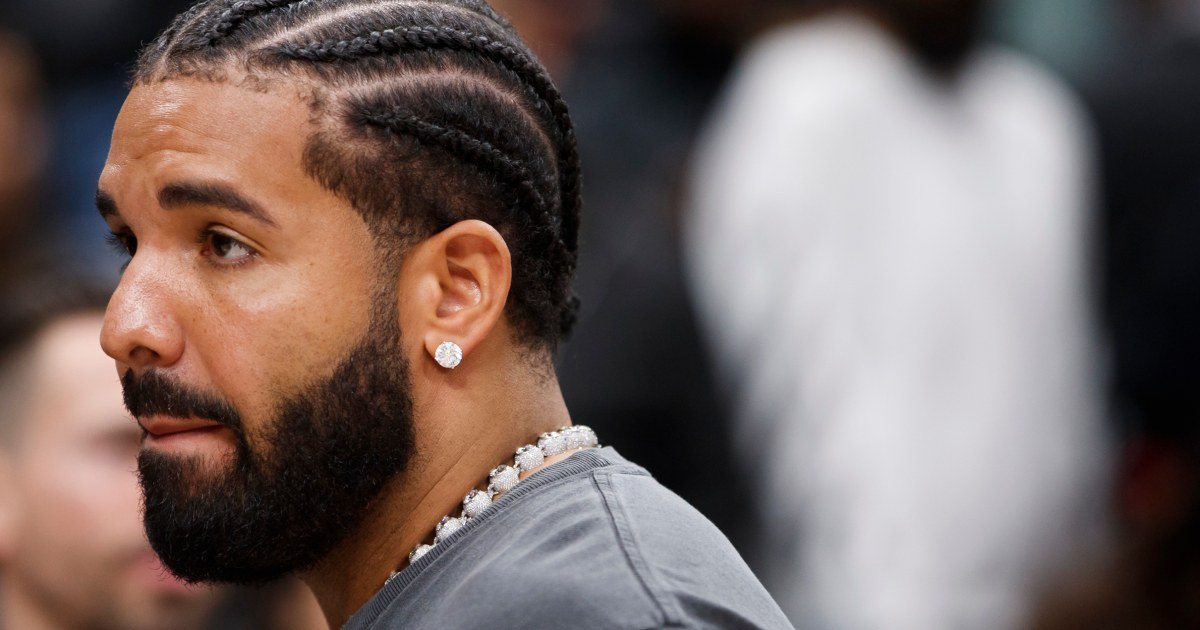
Kendrick Lamar made a number of critical allegations in opposition to Drake throughout their first headline-making rap beef. In his victory-clinching “Not Like Us,” Lamar renews criticisms about Drake’s cultural id and alleged inauthentic relationships with fellow artists.
“You referred to as Future if you didn’t see the membership/Lil Child helped you get your lingo up/21 (Savage) gave you false avenue cred,” Lamar rapped. “You run to Atlanta if you want a number of {dollars}/ No, you not a colleague, you a f— colonizer.”
For years, Drake has confronted allegations that he cozies as much as rap artists and replicates their sound and magnificence for private acquire earlier than transferring on to his subsequent venture. Rappers like Earl Sweatshirt, Rick Ross and Pusha T have spoken in regards to the purported sample, and claims of Drake being a “tradition vulture” have swirled for not less than a decade.
Many of the allegations lie in adapting phony accents, musical similarities and covers, appearances with burgeoning artists and unproven claims of theft.
When Drake launched his 2015 hit “Hotline Bling” on his Beats 1 Radio Present “OVO Sound,” it was initially billed as a “Cha Cha remix,” referring to Virginia singer DRAM’s earlier burgeoning hit. As time went on, although, Drake distanced “Hotline Bling” from the music amid allegations that he basically stole the monitor. DRAM has been vocal about his stance, writing in a post on X that fall, “Yeah, I really feel I received jacked for my document…However I’m GOOD.”
Drake advised The Fader in 2015 that “Hotline Bling” samples Timmy Thomas’ ’70s hit, “Why Can’t We Reside Collectively.” He chalked up similarities between “Hotline Bling” and “Cha Cha” to the artists utilizing an analogous “riddim,” sounds or riffs that act as anchors in Jamaican music.
“Think about that in rap, or think about that in R&B,” Drake mentioned. “Generally I’ll decide a beat that’s a bit, like, sunnier, I assume is the phrase you used, than standard, and I simply attempt my hand at it. And that’s sort of what ‘Hotline Bling’ was. And I liked it. It’s cool. I’ve been excited by that type of inventive course of.”
Gabe Niles, who produced “Cha Cha,” has mentioned the music doesn’t pattern Thomas’ monitor.
Related controversies have adopted Drake all through his profession, making Lamar’s criticisms the newest in an extended historical past of claims that Drake’s business practices could also be exploitative. However for Drake’s defenders, the problem isn’t a matter of exploiting Black cultures and artists, however of race.
Social media posts about Lamar’s lyrics rapidly dissolved into conversations about race within the hip-hop and rap business. Drake’s followers have lengthy held that his biracial id — he’s each Black and white — alongside together with his Canadian nationality negatively impacts his standing within the business.
“Individuals can’t fathom that they gave drake (a canadian biracial man) the legacy they NOW really feel kendrick (an american black man) ought to’ve had,” one individual wrote in a post on X. Another added: “You don’t get to name out a biracial individual for his or her blackness degree. That’s colorism, and I don’t f with that.”
Amara Pope, Pope explored Drake’s cultural and racial identities in her 2016 Ph.D. dissertation, Musical Artists Capitalizing on Hybrid Identities. She mentioned Drake’s place within the business is skewed by each his race and nationality.
“I believe that folks have questions on Drake’s authenticity on the subject of his Blackness based mostly on, not essentially what Graham has achieved,” Pope mentioned, referring to his actual title Aubrey Graham, “however the dominant perception … that Canadians are solely white and that Canadian music solely people or nation and R&B and hip-hop is solely created for Black Individuals.” Pope added that Drake represents his biracial, Canadian and Jewish roots in his music.
“Drake, for a very long time, has talked about not being Black sufficient to be in hip-hop music,” Pope mentioned.
Drake didn’t reply to a request for remark from NBC Information, however he has rapped about not feeling “Black sufficient” for the business and spoken in interviews about feeling “excluded” as a result of he’s half-white.
“Generally a few of my Blackest pals might be simply as merciless by making you’re feeling excluded or making you’re feeling like, ‘You’ll be able to’t get in on this,’” he mentioned in 2019 throughout an interview with Rap Radar.
“I affiliate myself as a Black man,” he mentioned, lamenting feeling that he’s not usually celebrated as a “Black artist” for his accomplishments. “It’s one thing that I simply acknowledge and I maintain it transferring.”
A.D. Carson, a professor of hip-hop and the worldwide south on the College of Virginia, doesn’t see it that approach, although. Legitimate criticisms of Drake shouldn’t be flattened right into a tragic story, he holds, however must be taken critically. Drake rose to recognition with melodic hip-hop music rooted in vulnerability and transparency, however this has since appeared to slide into an obvious sequence of personas that generally feels inauthentic and additional removes Drake from the sound that followers first fell in love with.
Carson describes Drake’s alleged habits within the music business as “cultural tourism.” Carson is a tenured professor of hip-hop at t the College of Virginia. His dissertation, “Proudly owning My Masters: The Rhetorics of Rhymes & Revolutions,” is a rap album set to be launched in October.
“Every little thing he’s in proximity to, he appropriates and mimics it,” Carson mentioned of Drake. “He’s capable of genre-hop via id theft, and it’s genre-bending in a approach that we positively critique white artists doing. He’s extra insulated from it due to what of us name ‘biracial id.’”
He added: “Kendrick is asking, ‘what’s the cultural id? What are these issues that you just possess outdoors of the means by which you’re going to promote your subsequent product?’ These are the questions.”
Drake has drawn criticism for dabbling in sounds from underground subcultures and artists — like Caribbean dancehall, U.Ok. grime, home music and New Orleans bounce, to call a number of. He has addressed the backlash, saying that he’s merely appreciating the music and supporting lesser-known artists.
“I hate that folks suppose that me being into music from these children which might be attempting to make it and construct a reputation for themselves is like, ‘Oh that’s some tradition vulture,’” he mentioned in a 2019 interview. “What does that even imply? I don’t perceive. Would you quite me not acknowledge something or not assist? That’s some actual confused hater sh—.”
Critics like Lamar have equated this assist to exploitation. In “Euphoria,” Lamar’s preliminary response to Drake’s “Push Ups” diss monitor, he implied that Drake’s songs with Black artists consequence from his supposed id points.
“What number of extra Black options ‘til you lastly really feel that you just’re Black sufficient?” Lamar raps.
In the meantime, Rick Ross, in a diss monitor of his personal, hurled insults about Drake’s race, calling him “white boy.”
Hip-hop, like all music genres, has racial dimensions and cultural affiliations. Conversations — and criticisms — of whiteness within the business have existed throughout the style for many years, particularly because it has grown right into a profitable, culture-defining, billion-dollar enterprise. Carson mentioned that conversations about Drake’s biraciality within the business shouldn’t be used to dismiss the legitimate criticisms of his allegedly exploitative music practices inside hip-hop.
“Drake’s skill to operationalize Blackness insulates him from critique. Any person would say, ‘Nicely, you possibly can’t acceptable Blackness in case you are Black,’” Carson mentioned. “No person is gatekeeping Drake out of Blackness. People are asking, ‘How does he profit from white supremacy?’”
For extra from NBC BLK, join our weekly e-newsletter.
-
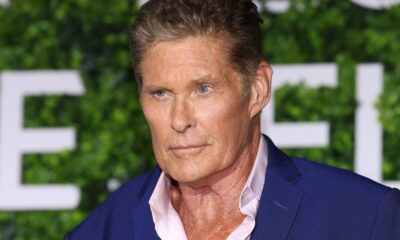
 News4 weeks ago
News4 weeks agoDavid Hasselhoff Mourns Baywatch Costar Michael Newman
-
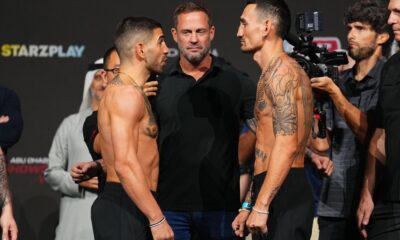
 News4 weeks ago
News4 weeks agoWinners And Losers From Topuria Vs. Holloway Card
-
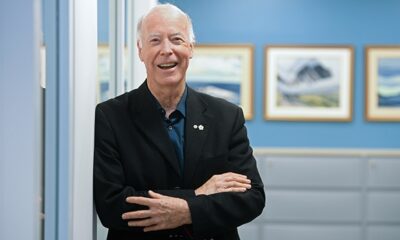
 News4 weeks ago
News4 weeks agoDr. Ron Stewart, pioneer of emergency and paramedicine, dies at 82 – Dal News
-

 News3 weeks ago
News3 weeks ago‘Dragon Age: The Veilguard’ Review: A Well-Aged Dragon
-
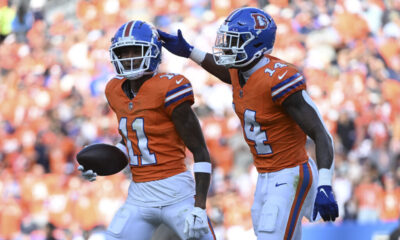
 News4 weeks ago
News4 weeks agoBroncos receiver Josh Reynolds recovering from two gunshot wounds after visit to strip club
-
![Here’s The Exact Time ‘Black Ops 6’ Launches On PC, Xbox And PS5 In Every Timezone [Update]](https://theepictimes.com/wp-content/uploads/2024/10/Heres-The-Exact-Time-‘Black-Ops-6-Launches-On-PC-400x240.jpg)
![Here’s The Exact Time ‘Black Ops 6’ Launches On PC, Xbox And PS5 In Every Timezone [Update]](https://theepictimes.com/wp-content/uploads/2024/10/Heres-The-Exact-Time-‘Black-Ops-6-Launches-On-PC-80x80.jpg) News4 weeks ago
News4 weeks agoHere’s The Exact Time ‘Black Ops 6’ Launches On PC, Xbox And PS5 In Every Timezone [Update]
-
News3 weeks ago
Dragon Age: The Veilguard (Xbox Series X) Review
-

 News4 weeks ago
News4 weeks agoKlay Thompson sets 3s record for Dallas debut in Mavs win after 13 seasons with Warriors
